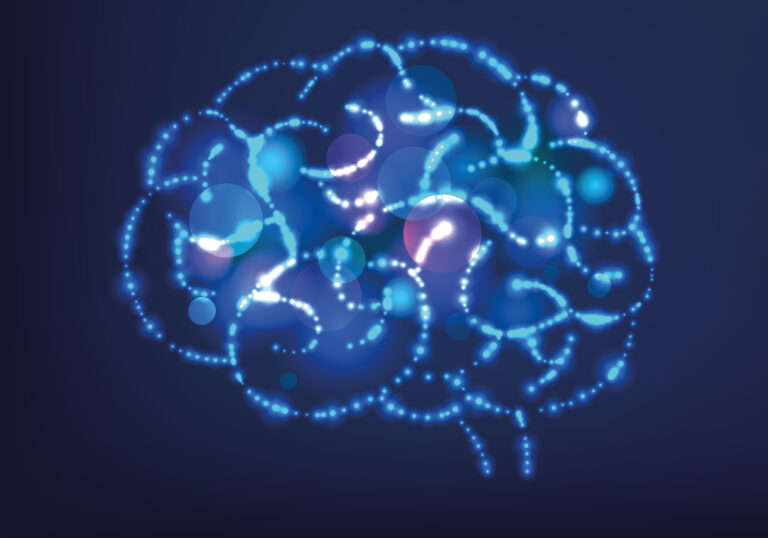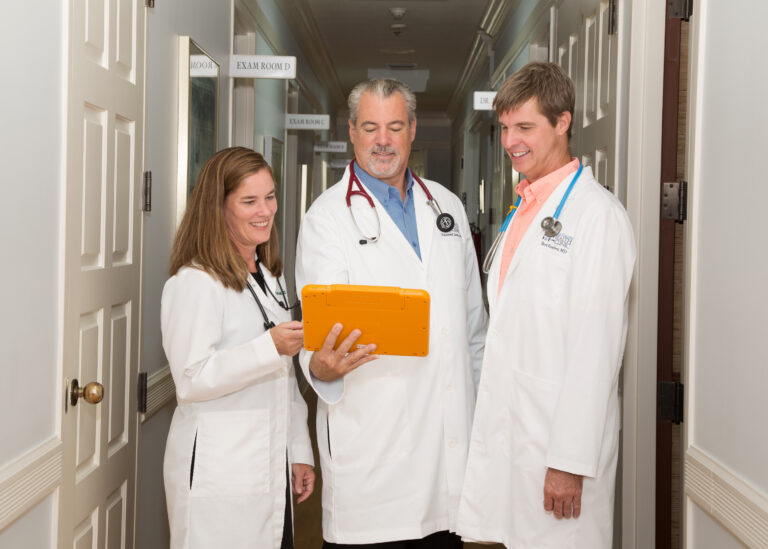
What you need to know about strokes

Strokes happen when the blood supply to part of the brain is interrupted or reduced, which prevents brain tissue from getting oxygen and nutrients, which leads to brain damage or death. According to the Centers for Disease Control and Prevention (CDC), stroke is the fifth leading cause of death in the U.S. and is a leading cause of long-term disability.
May is National Stroke Awareness Month, an opportunity to learn about stroke prevention and treatment. Stroke risk increases as we age. Women generally live longer than men, so it’s not surprising that more women have strokes over their lifetimes than men. In the U.S., 1 in 5 women between the ages of 55 and 75 will have a stroke, according to the 2006 Framingham Stoke Study.
Take FAST action
When a stroke happens, brain cells begin to die in minutes, so quick medical treatment is essential when a stroke is suspected. It is important to recognize the signs and symptoms of a stroke and get prompt medical attention. The acronym FAST can help you remember the signs:

F = Face Drooping – Does one side of the face droop or is it numb? Ask the person to smile. Is the person’s smile uneven?
A = Arm Weakness – Is one arm weak or numb? Ask the person to raise both arms. Does one arm drift downward?
S = Speech Difficulty – Is speech slurred or difficult to understand?
T = Time to call 911 – If any of these symptoms are experienced, it is important to call 911 immediately
Hope for stroke recovery
While fast action can be life-saving, stroke survivors have lasting physical and emotional effects. Until very recently, research to date has focused on the acute effects of stroke and treatments, rather than the long-term, chronic effects of stroke. In a new study conducted by Weill Cornell Medicine and published last month, scientists cataloged hundreds of small cerebral blood vessels “downstream” of the blockage in strokes that are also affected.
This is significant because changes in those blood vessels are thought to contribute to brain damage post-stroke. About 1 in 4 people who have had a stroke will go on to develop signs of dementia. This comprehensive study of post-stroke changes opens the possibility of using existing or future drugs to target those changes and “mitigate brain injury or improve stroke recovery,” according to the Cornell Chronicle.
You can prevent a stroke
The good news is that strokes are largely preventable. In fact, 4 in 5 strokes are preventable, according to the CDC. The best way to reduce your risk of stroke (or heart disease, or so many other health conditions) is to eat a healthy diet that leads to a good cholesterol level, stop smoking and exercise regularly. Managing chronic health conditions like high blood pressure, diabetes and high cholesterol can also lower the risk. You should also have regular checkups, monitor your blood pressure and find out if you should be taking a drug to reduce blood clotting.
More resources
- The American Stroke Association (celebrating 25 years of progress) includes information for patients and caregivers: https://www.stroke.org/en/.
- The CDC has vast resources on strokes: https://www.cdc.gov/stroke/index.htm.
- Read about the Weill Cornell study, “Cerebral blood vessels reveal potential stroke drug target”: https://news.cornell.edu/stories/2023/04/cerebral-blood-vessels-reveal-potential-stroke-drug-target.
More Recent Healthcare News

April, the birth month of James Parkinson, is Parkinson’s Disease Awareness Month. Parkinson’s is a degenerative syndrome that results in the gradual loss of brain circuitry involved in movement, thinking and behavior. According to the National Institutes of Health (NIH), the first clear medical description of Parkinson’s Disease as a neurological condition was written in […]

March 30th marks a special day on our calendar – Doctor’s Day! It’s a time to honor those who dedicate their lives to caring for us. At the Boca Grande Health Clinic, it’s the extraordinary team of board-certified physicians – Dr. Raymond A. James, our Medical Director; Dr. Bret Kueber, the Assistant Medical Director; and […]

Ask a Doc: Kicking Colon Cancer in the Butt
March 22, 2024According to the American Cancer Society, the lifetime risk of developing colorectal cancer is about 1 in 23 for men and 1 in 25 for women. The death rate from colorectal cancer has been dropping in older adults for several decades. Unfortunately, colorectal cancers now rank as the leading cause of cancer death in men […]

What’s on Your Plate? Tips to boost your nutrition
March 8, 2024March is the harbinger of spring and with it, the start of daylight saving time – an extra hour for healthy activities from taking in the great outdoors to growing a garden. It’s also National Nutrition Month, a time to focus on making informed food choices and developing sound eating habits. With lifestyle-related diseases like […]

